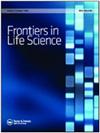营养安全是粮食安全的一个组成部分
Q1 Biochemistry, Genetics and Molecular Biology
引用次数: 69
摘要
摘要本综述认为,营养是粮食安全的一个组成部分,应纳入其所有四个维度——可得性、可及性、利用性和稳定性。该报告强调了中东和北非地区目前的粮食不安全状况,营养不足、微量营养素缺乏和超重/肥胖并存的三重营养不良负担加剧了该地区的粮食不安全状况。以往在中东和北非解决粮食安全问题的努力侧重于粮食供应,忽视了其他三个方面,并将营养问题放在一边。与此同时,文献已经认识到需要强调营养是根本,并选择了“粮食和营养安全”一词。为了在中东和北非地区实现粮食和营养安全,必须从评估、政策和规划到能力建设的所有四个方面应用营养视角。例如,中东和北非国家可以采取政策和计划,包括结构合理的食品补贴、膳食指南、公众意识和教育运动,以增加营养和安全食品的供应和可及性,并刺激消费者对这些食品的需求。为实现这一目标,中东和北非地区需要建设利益攸关方的能力,并使他们具备应对当前和未来阻碍实现粮食和营养安全的挑战的能力。本文章由计算机程序翻译,如有差异,请以英文原文为准。
Nutrition security is an integral component of food security
ABSTRACT This review argues that nutrition is an integral component of food security, and should be embedded within all four of its dimensions – availability, access, utilization, and stability. The review highlights current food insecurity in the Middle East and North Africa (MENA) region, as exacerbated by the triple burden of malnutrition, where undernutrition, micronutrient deficiencies, and overweight/obesity coexist. Previous efforts to address food security in MENA have focused on food availability, overlooking the other three dimensions and leaving nutrition considerations aside. Meanwhile, the literature has recognized the need to highlight nutrition as fundamental, and opted for the term ‘food and nutrition security’. To achieve food and nutrition security in MENA, a nutrition lens must be applied across all four dimensions – from assessment, to policy and programming, to capacity building. For example, MENA countries can adopt policies and programs including well-structured food subsidies, dietary guidelines, public awareness, and education campaigns to increase availability and accessibility of nutritious and safe foods, and stimulate consumer demand for those. To accomplish this, MENA needs to build stakeholders' capacity and equip them to address the challenges that are hindering the achievement of food and nutrition security now and into the future.
求助全文
通过发布文献求助,成功后即可免费获取论文全文。
去求助
来源期刊

Frontiers in Life Science
MULTIDISCIPLINARY SCIENCES-
CiteScore
5.50
自引率
0.00%
发文量
0
期刊介绍:
Frontiers in Life Science publishes high quality and innovative research at the frontier of biology with an emphasis on interdisciplinary research. We particularly encourage manuscripts that lie at the interface of the life sciences and either the more quantitative sciences (including chemistry, physics, mathematics, and informatics) or the social sciences (philosophy, anthropology, sociology and epistemology). We believe that these various disciplines can all contribute to biological research and provide original insights to the most recurrent questions.
 求助内容:
求助内容: 应助结果提醒方式:
应助结果提醒方式:


